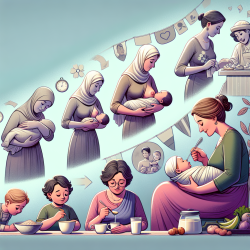Understanding the "Vital Minimum" in El Salvador
The concept of the "vital minimum," as articulated by early 20th-century Salvadoran essayist Alberto Masferrer, provides a framework for examining the roles and contributions of older adults in Salvadoran society. This notion encompasses basic life rights and living standards for all Salvadorans, emphasizing the dignity and social roles of older adults. The recent research article "Vital minimums: El Salvador between youth and old age" by Jorge E. Cuéllar explores how older adults in El Salvador contribute to the social fabric and community well-being.
Key Findings and Implications for Practitioners
The research highlights several critical roles that older adults play in Salvadoran society:
- Economic Support: Older adults often serve as economic supports within their families and communities. They engage in small-scale entrepreneurship and contribute to household income, which is vital in a country with limited social safety nets.
- Community Mediation: Older adults act as community mediators, using their social networks and life experiences to resolve conflicts and foster community cohesion.
- Caregiving: They provide essential caregiving roles, supporting both younger and older family members, thus ensuring the social reproduction of the community.
These roles underscore the importance of older adults in maintaining the social and economic stability of their communities. Practitioners working with older adults in El Salvador or similar contexts should consider these roles and advocate for policies that support and enhance the contributions of older adults.
Encouraging Further Research
The study suggests a need for further research into the social worlds shaped by older adults. Understanding the dynamics of transnational aging and the factors influencing older adults' decisions to repatriate can provide valuable insights into how societies can better support their aging populations. Researchers are encouraged to explore the intersection of aging, migration, and social policy to develop comprehensive strategies that address the needs of older adults.
Conclusion
The concept of the "vital minimum" offers a lens through which to understand the critical roles of older adults in Salvadoran society. By recognizing and supporting these roles, practitioners can contribute to creating more inclusive and supportive environments for older adults. For those interested in delving deeper into this topic, I recommend reading the original research paper, Vital minimums: El Salvador between youth and old age.










